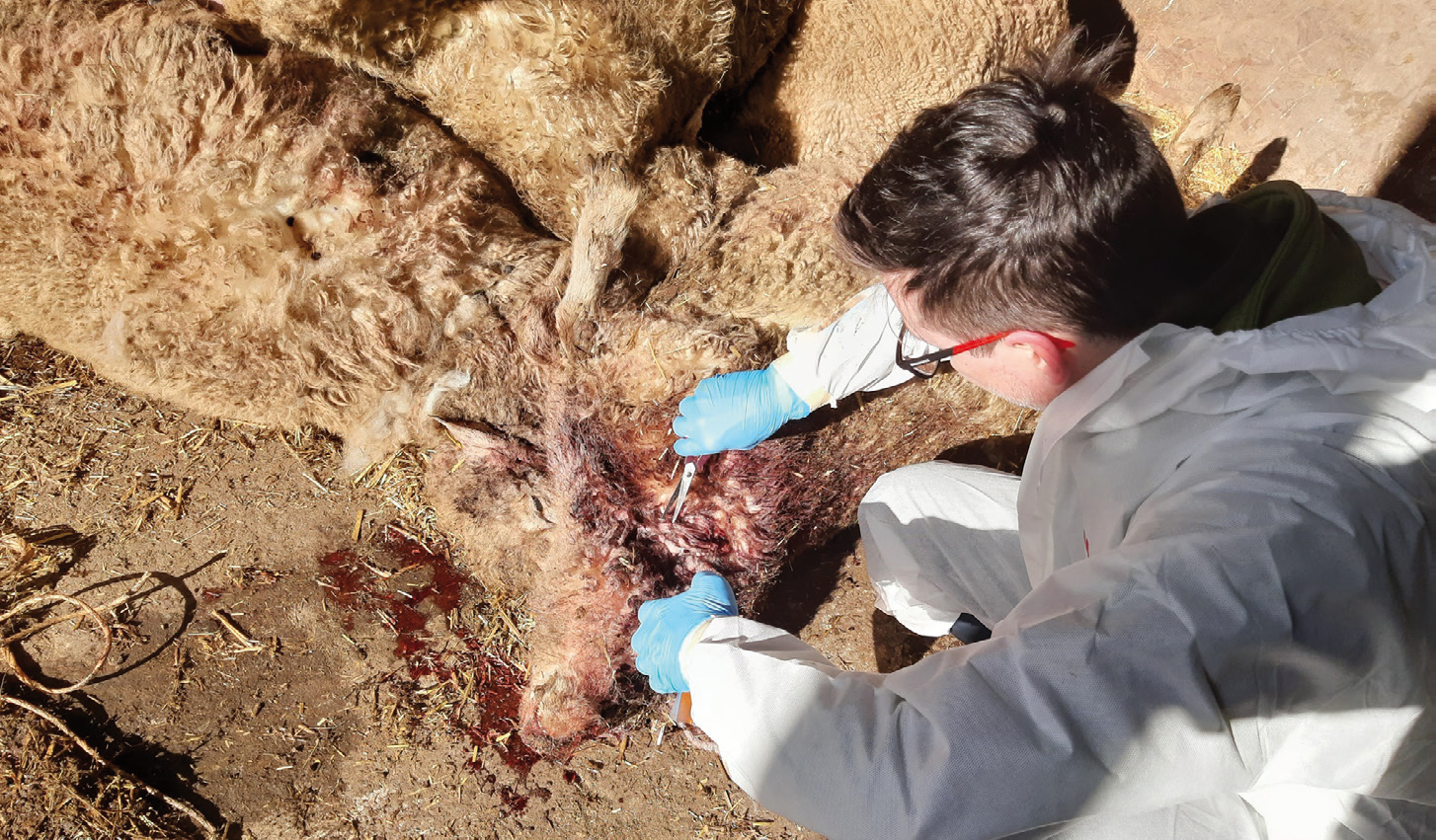Canine attacks on livestock represent a significant animal welfare concern with substantial emotional and financial implications for farmers. The National Farmers’ Union estimates the annual cost of livestock injuries and fatalities due to dog attacks in the UK to be £2.4 million.
The canine DNA recovery project (CDnaRP), led by Dr Nick Dawnay at Liverpool John Moores University, offers a new solution to this issue; this is why I am pleased to be part of the project, acting as a veterinary consultant. This initiative focuses on collecting and analysing canine DNA from livestock attack scenes, utilising early evidence kits designed for use by police, veterinarians or farmers. These kits facilitate the rapid collection of DNA samples, providing a scientifically robust method for identifying the responsible dog.
Following a successful pilot program in Wales, the CDnaRP conducts trials in 10 regions across England and Wales, supported by IVC Evidensia farm practices. This collaborative effort aims to refine best practices for canine DNA collection and analysis, contributing to more effective investigation and resolution of livestock attack incidents.
The challenge of managing livestock attacks
One of the biggest challenges faced in managing dog attacks on livestock is accurately identifying the responsible dog. The CDnaRP provides confirmatory evidence, removing ambiguity and allowing us to prove which dog is responsible definitively.
This scientific certainty is crucial for protecting innocent animals and providing justice and a pathway to compensation for farmers who have lost livestock.
Overcoming historical challenges
This project represents a significant advancement in the field of forensic science, addressing longstanding challenges in collecting canine DNA from livestock attack scenes. The development of a more sensitive DNA probe enhances the ability to obtain viable samples, even in remote locations or under challenging conditions such as the presence of lanolin in sheep fleece or contamination from mud. This improved technique will facilitate more accurate and reliable identification of canines involved in livestock attacks, ultimately aiding in investigating and resolving these incidents.
A targeted approach to DNA collection
The CDnaRP employs a targeted approach to DNA collection and analysis, focusing on specific cases of livestock attacks rather than establishing a comprehensive DNA database.
Currently in its research phase, the CDnaRP, led by Liverpool John Moores University, prioritises the validation and refinement of DNA collection and analysis techniques to ensure accuracy and reliability. While the evidence generated is not yet admissible in legal proceedings, the project represents a crucial step towards the definitive identification of offending animals. The goal is to integrate this technology into legal processes, providing law enforcement with a valuable tool for investigating and resolving livestock attack cases.

A potentially broader application in criminal justice
Beyond identifying dogs responsible for livestock attacks, the research from this project has the potential for much broader applications in the criminal justice system. For example, it could be used to address other types of dogrelated incidents, such as attacks on people. By creating a new sensitive reliable scientific method for collecting and identifying canine DNA, we are opening the door to a range of possibilities that could help law enforcement address animal-related crimes more effectively.
The project also has international potential. The science kits being developed through this project use a completely different model from what is commercially available at the moment so that the implications could be widespread.
How to get involved in the canine DNA recovery programme:
The CDnaRP team is calling on farmers living in one of the 10 designated trial regions to participate in the project's development by using the early evidence kits to collect samples from livestock attacked. The participating regions include:
These efforts will help identify best practice methods for collecting and analysing canine DNA and. You can find out more about the canine DNA recovery project by visiting: www.ljmu.ac.uk/about-us/news/arti-cles/2024/5/17/forensic-science-to-help-farm-ers-foil-sheep-attacks.


